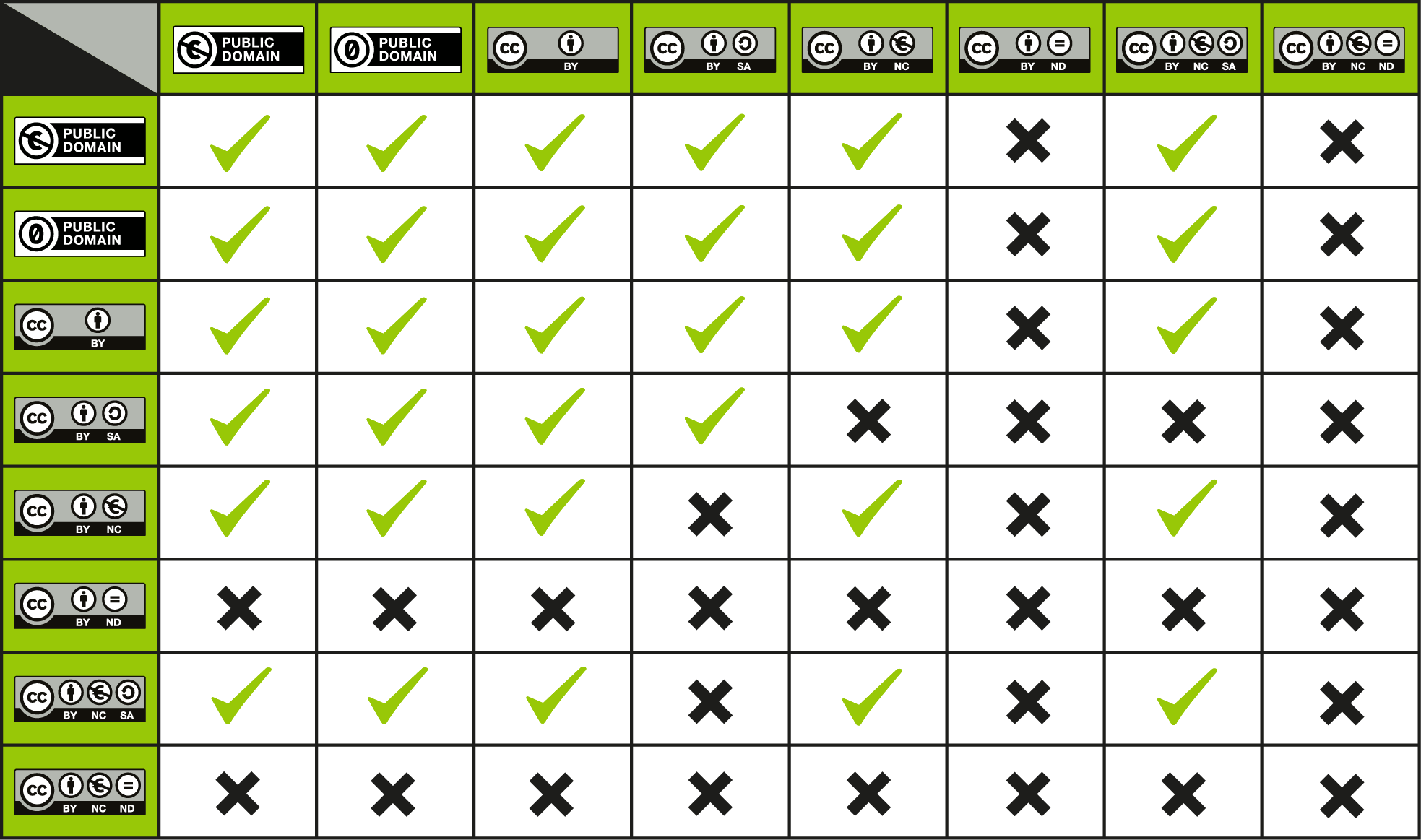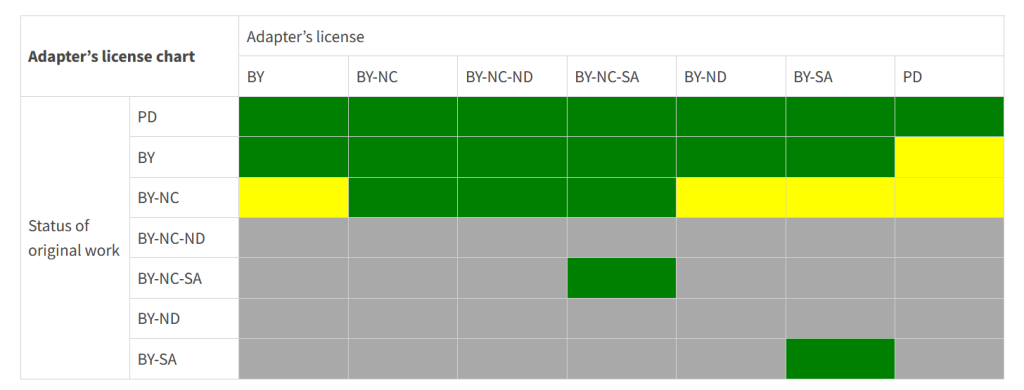Adaptation Considerations
When it comes to working with OER, one of the conceptual hurdles faced by most people is the notion of adapting or changing someone’s work. What exactly can be adapted within the scope of an open textbook? Won’t the original author get upset if you change their work?
![]()
Changing someone’s work can feel uncomfortable. But rest assured, if the author has released their textbook under a Creative Commons license that allows for adaptation (which is any Creative Commons license that does not have a No Derivative (ND) attribute added to it) then they expect that you will change the content, providing you give them the proper attribution (and we’ll get into this). Using information and media from an open textbook or other open educational resource is NOT considered plagiarism.
What Can You Change?
![]() Anything and everything in an open textbook can be changed as long as the conditions of the open license are met. The modifications or changes you make can be fairly minor or major depending on what you need to do to make the book work for you. That is the beauty and power of open textbooks. You are in charge of the resource. You have been given permission to change it ahead of time by the original author.
Anything and everything in an open textbook can be changed as long as the conditions of the open license are met. The modifications or changes you make can be fairly minor or major depending on what you need to do to make the book work for you. That is the beauty and power of open textbooks. You are in charge of the resource. You have been given permission to change it ahead of time by the original author.
Compatible Licenses
Keep in mind that when you are mixing different resources you need to be cognizant of the licenses as some of the Creative Commons licenses are incompatible. See this graphic below for more information.

-
Public Domain means that permission is not required to use it or make changes to it.
-
Also, note that a license with a No Derivative (ND) attribute means you are not able to change the contents.
- See Creative Commons for more information on licenses.
When the adaptation includes more than one CC-licensed work, the licensing compatibility also must be observed before a creator can choose a license for her own contribution (the “adapter’s license). The chart below describes which CC licenses can be chosen as an adapter’s license. The licenses in green are fully compatible, while the ones in grey are not. Choosing a license corresponding to the yellow boxes is not recommended, though technically allowed by the terms of the license.

Recording Your Changes
As the author, you retain the copyright of all new material you create. This means that even if the new material you create is released under an open license, as the author, you will receive attribution for your contribution. As you edit and make changes (text and images) and/or add new material, such as a chapter or section within a chapter, keep a list of the additions/changes. This information can be included in the front matter of the book under the acknowledgments or copyright information. Minor changes, such as fixing grammatical or spelling mistakes, don’t need to be documented. If you add material from another openly licensed work to your adaptation, especially text, record the source and where it is used in your adapted version. This information is needed for the wording and placement of each attribution statement required for each open CC BY (Creative Commons Attribution) licensed work you use. For more information, see Attribution Statements or the OER Prep Course.
“3. Permission to Adapt” from Adaptation Guide by BCcampus is licensed under a Creative Commons Attribution 4.0 International License, except where otherwise noted.
“4 Licensing considerations for remixes/adaptations” fromCollections and remixes by agoncavles is licensed under a Creative Commons Attribution 4.0 International License, except where otherwise noted.

